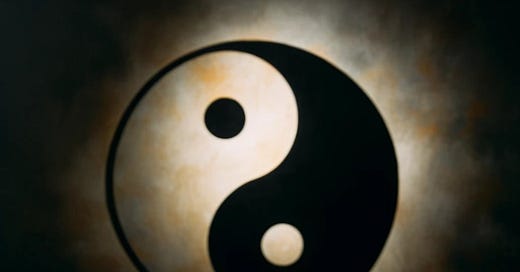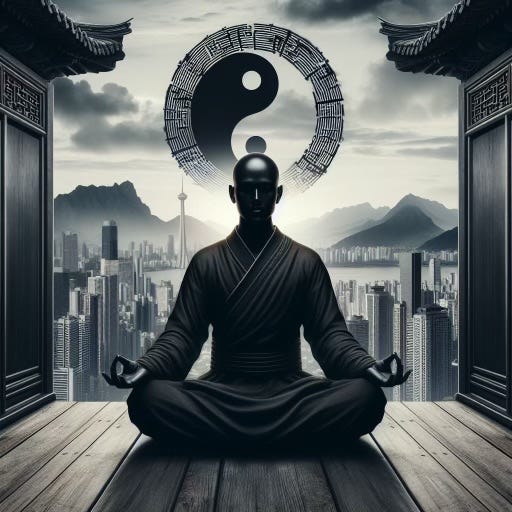While wandering through life’s paradoxical labyrinth, I’ve now found myself at a crossroads where two ancient paths converged: Epicureanism and Taoism. Both offer a profound understanding of life's pleasures and the pursuit of happiness, yet each treads its own unique path.
In delving deep into this intersection, I discovered insights into material abundance, sexual energy, the delights of great cuisine and wine, the bonds of community, the liberation of ecstatic dance, and the essence of happiness.
The Epicurean philosophy, born in the Hellenistic period, centers around the pursuit of pleasure and the avoidance of pain. Yet, it is a common misconception that this translates to hedonism. Epicurus preached not the chase of fleeting pleasures, but the cultivation of sustained joy through simple living, friendship, and contemplation. Material abundance, in this view, is not a goal but a byproduct of a life well-lived.
Taoism, an ancient Chinese philosophy, embraces the principle of 'wu wei' or effortless action. It teaches us to flow with life's rhythms, like water carving its path through a landscape. The Taoist pursuit of balance and harmony contrasts with the often frantic chase of material wealth in Western societies, guiding us towards inner richness and peace.
Combining these philosophies, I realized that true abundance lies not in the accumulation of wealth or possessions but in the richness of experiences and connections. Great cuisine and fine wine, for instance, are not just about the sensory pleasures they provide. They offer the joy of creation, the art of balance in flavors, and the communal experience of sharing a meal. Here, the Epicurean celebration of sensory pleasure meets the Taoist appreciation for balance and harmony in life.
Sexuality and kundalini energy present a more complex intersection. Epicureanism views sexual pleasure as natural and beneficial, but warns against the turmoil of sexual obsession. Taoism, particularly in its esoteric forms, views sexual energy as a powerful life force to be harnessed for spiritual growth.
Kundalini, a concept more aligned with Hinduism than Taoism, represents a primal energy at the base of the spine. When awakened, it is believed to lead to spiritual enlightenment. This synergy teaches us to embrace our sexual nature while recognizing its deeper connection to our spiritual well-being.
Community, in both philosophies, holds a central place. Epicurus stressed the importance of friendship in achieving a happy life, while Taoism emphasizes harmony within the community and with nature. In today's world, where individualism often trumps communal well-being, these ancient teachings remind us of the joy and support we find in collective experiences.
Ecstatic dance, an expression of joy and liberation, can be viewed through the lens of 'wu wei'. In the uninhibited flow of dance, we find a form of meditation, a release of pent-up emotions, and a celebration of the present moment. This aligns with the Epicurean pursuit of joy and the Taoist principle of flowing with the Tao, the universal force.
So, how can one tap into the benefits of this realm? The key lies in balance and mindfulness. Embrace material comforts without becoming enslaved by them. Engage in the pleasures of the senses – food, wine, sex – with mindfulness and moderation. Cultivate deep, meaningful relationships and immerse yourself in the joy of community. Allow yourself the freedom of ecstatic dance, releasing inhibitions and connecting with the present.
Above all, remember that happiness is not a destination but a journey. It is found in the balance of enjoying life's pleasures while maintaining an inner tranquility. By weaving together the wisdom of Epicurus and Laozi, we find a path that celebrates life in all its facets, teaching us to live with joy, simplicity, and harmony.
For me, the exploration of Epicurean and Taoist philosophies has been more than an academic exercise; it has been a transformative experience. It taught me that the art of living well is not about extremes but about finding the golden mean in all things. In this balance, we discover the true essence of happiness.
The Chocolate Taoist is a reader-supported publication. To receive weekly reflections and support the world of independent publishing, please consider becoming a paid subscriber at $6.00/month or $60.00/year.





